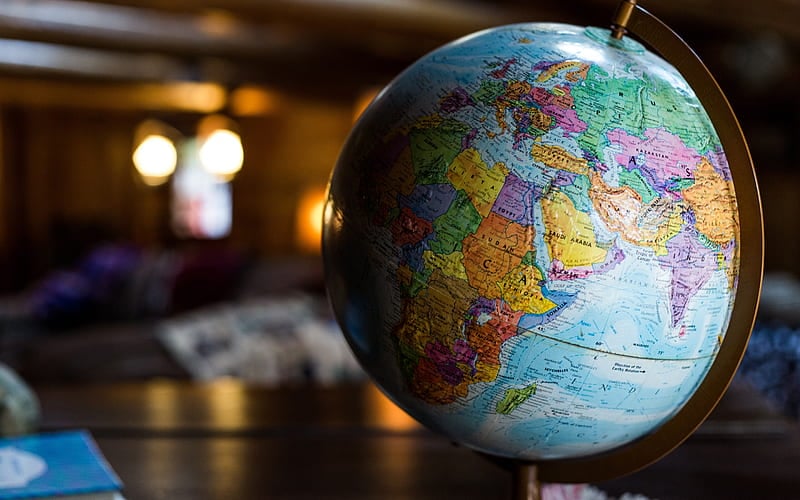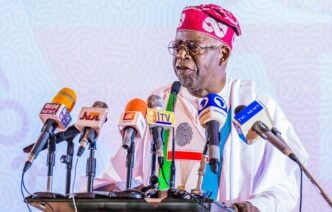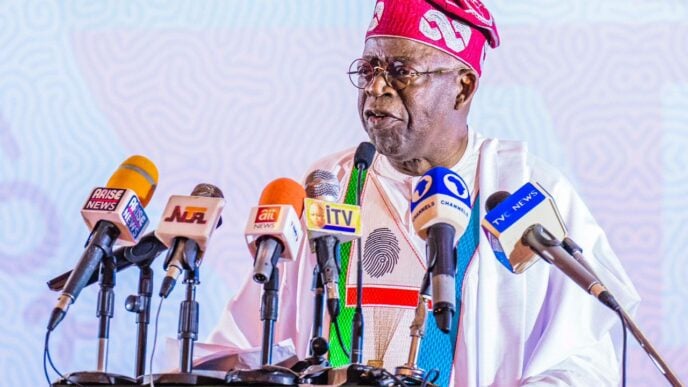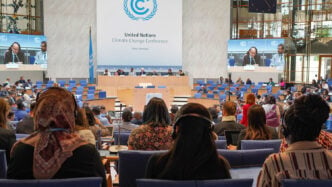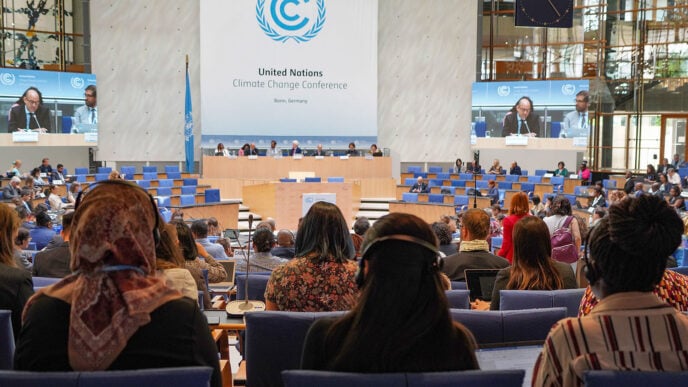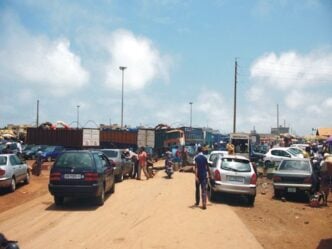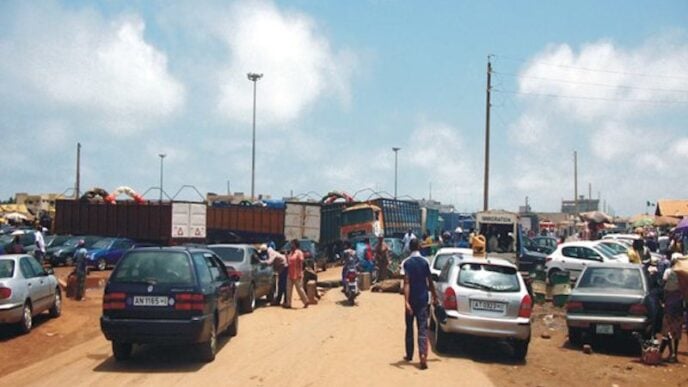BY ADESEGUN OSINBAJO
For many African travellers, exploring the continent should be exciting, but the frustration of currency exchange turns it into a costly and inconvenient experience.
Take 2AO, a Lagos-based tourist travelling to Nairobi. Before departure, they must convert Naira to U.S. dollars, then exchange those dollars for Kenyan Shillings upon arrival. The process repeats on the return journey, adding extra financial strain and unnecessary inconvenience.
Beyond the inconvenience, this challenge reinforces Africa’s reliance on foreign currencies such as the U.S. dollar and the Euro. Each conversion strengthens external economies while weakening African currencies. The introduction of a single African currency would eliminate these obstacles, making travel within Africa seamless and encouraging African citizens to explore their continent without the burden of exchange complexities.
Advertisement
Trade and SMEs: Breaking Free from Foreign Intermediaries
Africa’s fragmented currency system does not just affect travellers—it significantly hampers trade. Nigerian traders exporting goods across Africa struggle with multiple exchange rates, slow international transaction processes, and costly financial intermediaries, which complicate cross-border trade. Many transactions require foreign currency conversions facilitated by European and American banks, further increasing costs and reducing Africa’s ability to conduct independent financial operations.
Small and medium enterprises (SMEs), the backbone of African economies, suffer disproportionately from these hurdles. A unified currency would empower businesses to conduct transactions directly without intermediary institutions, reducing costs and simplifying the trade process. Additionally, African economies suffer from exchange rate volatility, complicating trade agreements and deterring investors. A single currency would stabilise pricing and boost investor confidence, making Africa a stronger global economic player.
Advertisement
Championing Intra-African Trade
Nigeria’s minister of industry, trade, and investment, Jumoke Oduwole, alongside other African ministers of trade, has been a steadfast advocate for Africa’s economic integration through the African Continental Free Trade Area (AfCFTA). She has worked tirelessly to eliminate trade barriers and ensure Nigeria plays a leading role in intra-African commerce.
Despite AfCFTA’s progress, the absence of a single African currency remains a major challenge, complicating cross-border transactions and limiting trade fluidity. Businesses are forced to operate within fluctuating exchange rates, increasing transaction costs and making intra-African commerce unnecessarily expensive. The reliance on external financial institutions for currency conversion undermines Africa’s economic sovereignty, keeping trade dependent on foreign intermediaries and reducing Africa’s ability to build a self-sustaining financial ecosystem.
Oduwole, along with other African trade ministers, has emphasised the need for a unified currency, arguing that African businesses will continue to suffer financial delays, losses due to fluctuating exchange rates, and challenges in establishing predictable pricing models without it. The Pan-African Payment & Settlement System (PAPSS), designed to facilitate swift intra-African transactions, faces limitations without a single currency that allows businesses to trade directly without dependency on external financial systems.
Advertisement
Overcoming Divide-and-Conquer Strategies
While a unified African currency presents enormous advantages, historical obstacles remain. The West’s divide-and-conquer approach, institutionalised during the Berlin Conference of 1884, continues to shape Africa’s economic fragmentation. African leaders have often been pressured or incentivised to maintain separate financial structures, not because they benefit their nations, but because they serve the interests of Western economies.
The tactics of financial control remain evident. Leaders who uphold division receive financial and political rewards, while those who advocate unity and financial independence face opposition, sanctions, or destabilisation efforts. A single African currency challenges this control, making it harder for external financial institutions to dictate Africa’s economic trajectory. This opposition often emerges from within African governments, as some leaders are reluctant to lose foreign financial backing and actively block unity-focused initiatives.
Recognising the growing demand for financial sovereignty, the Africa Woke Citizens Platform (AWCP) has submitted this issue to the African Union Commission (AUC) as part of its Citizens’ Expectations Agenda, advocating for increased public discussion and transparency regarding Africa’s financial independence. Across the continent, the call for change is growing louder, and African citizens are demanding a future free from external financial control.
Advertisement
Building Financial Independence
To withstand external pressures, Africa’s largest economies must take the lead in fostering unity, deepening cooperation, and championing financial sovereignty. Nations such as Nigeria, South Africa, and Egypt bear the responsibility of spearheading Africa’s financial transformation. Their leadership must go beyond symbolic gestures and result in concrete policy actions aimed at strengthening Africa’s financial institutions, enhancing intra-African trade agreements, and facilitating cross-border investments.
Advertisement
Without decisive leadership, Africa risks remaining fragmented, unable to fully capitalise on its resources, industrial capacity, and entrepreneurial potential. Establishing a strong African financial framework would allow the Continent to dictate its own economic policies, gain leverage in global negotiations, and remove external financial control that has hindered Africa’s progress for generations.
Uniting Africa Toward Financial Freedom
Advertisement
The establishment of a single African currency is both ambitious and necessary. It is an essential step toward removing financial barriers, empowering African businesses, and boosting tourism. As Dr. Oduwole and other advocates of African trade continue to push for policy reforms, Africa is inching closer to economic unity.
This movement is not simply about currency—it represents Africa’s rightful place in the global economy. African nations must no longer be forced into inefficient financial systems that serve foreign interests instead of their own. The era of reliance on Western financial institutions to dictate Africa’s economic trajectory must come to an end.
Advertisement
The single African currency could be the turning point, eliminating trade restrictions, strengthening intra-African commerce, and positioning Africa as a global economic powerhouse. The time for financial unity is now.
God bless Africa!
Engr. Adéṣẹ́gun Olútáyọ̀ Adéolú Ọṣìbánjọ is the convener, Africa Woke Citizens Platform (AWCP)
Views expressed by contributors are strictly personal and not of TheCable.
